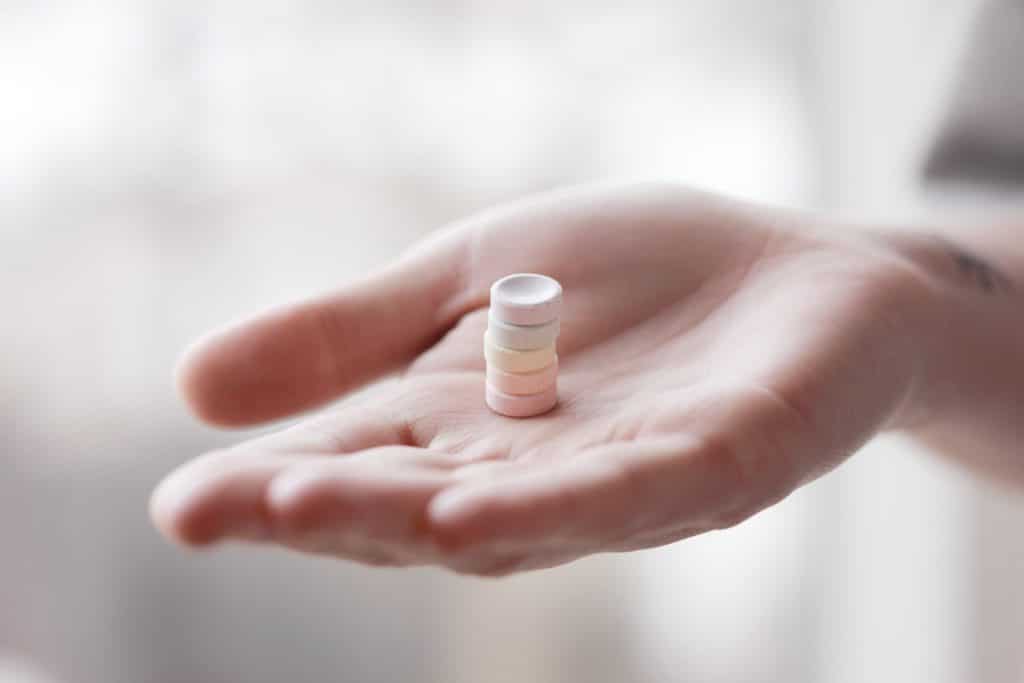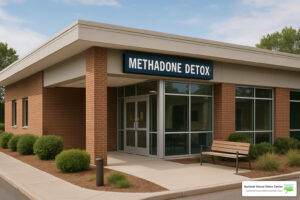
Suboxone and Opiate Withdrawal—Separating Fact from Fiction
Does Suboxone help with opiate withdrawal symptoms? Get facts on how it provides relief & supports a safe detox at Summer House.

November 2, 2020
Benzos, or benzodiazepines, are a medication that is usually given to help people sleep or deal with anxiety. You may be aware that going through alcohol detox often involves the use of benzos to help minimize withdrawal symptoms. You may also be aware that doctors could use one type of benzo to help minimize withdrawal symptoms associated with stopping the use of another benzo. It may sound like a paradox that doctors would do this, but it is common practice and very effective.
Benzos, which are known by such brand names as Xanax, Valium, Ativan, or Klonipin, are a class of medications that depress the central nervous system. Benzos impact a neurotransmitter in the brain known as gamma-aminobutyric acid (GABA). GABA slows down the brain, leading to a sense of relaxation. When you take benzos, you will usually feel calm and perhaps drowsy. Benzos are prescribed to help people control anxiety, panic attacks, insomnia, but are also prescribed to prevent seizures, especially in people who are detoxing from alcohol.
If you are dependent upon benzos, detox can provide you with a supportive and safe environment in which to detox. You are assessed and offered a personalized treatment plan which takes all of your medical and mental health issues into consideration to determine the best course of detox for you. If you stop taking benzos abruptly, serious and dangerous consequences could occur, including seizures.
Detoxing from benzos should never be done on your own, and only under medical supervision. Doctors will sometimes place a person on a longer-acting benzo to help taper them off another benzo.
When a person has become physically dependent upon alcohol, stopping alcohol can lead to a variety of withdrawal symptoms. Most people will experience such symptoms as agitation, insomnia, tremors, and loss of appetite. Other people experience more severe issues, such as high blood pressure, fevers, hallucinations, and seizures (known as delirium tremens). If a person develops delirium tremens, the outcome could perhaps be fatal. Most of the time, alcohol withdrawal will be uncomplicated and relatively mild. However, there is often no way to know who will experience a mild withdrawal, and who will develop serious or even fatal outcomes.
When a person enters a medical detox program for managing alcohol withdrawal, benzodiazepines are the first choice for preventing or treating seizures and other complications. When a person is in a detox program for alcohol dependence, an assessment tool known as a CIWA- r, the Clinical Institute Withdrawal Assessment of Alcohol Scale-Revised, helps a medical professional assess a person’s symptoms of alcohol withdrawal. When a nurse or physician administers a CIWA, they evaluate signs of alcohol withdrawal, including tremors, nausea and vomiting, sweating, anxiety, and whether or not the person in withdrawal is having hallucinations, which means that they see or hear things that others do not. The maximum score on a CIWA is 67, and generally, scores at 10 or above typically lead doctors to start a dose of benzos to help prevent symptoms from getting worse.
Diazepam (Valium) and chlordiazepoxide (Librium) are the most commonly used drugs during detox to help minimize withdrawal symptoms. Lorazepam (Ativan) is also used in some cases of alcohol detox, as is oxazepam (Serax).
In many cases, doctors will give benzos for three to five days, carefully checking a patient’s symptoms of alcohol withdrawal and complications by using the CIWA and other assessment tools. The drugs used and the schedule and dosage of benzos will vary from one person to another, depending on the severity of alcohol withdrawal, underlying health conditions, and how many times a person has already undergone alcohol detox.
If you are undergoing a benzo detox, your doctor will determine which benzos are appropriate to help you withdraw safely from benzos.
Benzos are not recommended for use in the elderly, and there may also be other reasons a doctor may decide against using benzos to help you get through alcohol detox and withdrawal. However, if you are pregnant, you can be given benzos for alcohol detox under strict medical supervision. Some medical conditions can worsen due to the use of benzos, so your treating doctor will have to decide if benzos are right for your situation.
Benzos are generally safe to take for a short time. People who take benzos tend to get physically dependent only after a few weeks of use. Taking benzos for a few days in a detox program under medical supervision will not result in addiction.
If a person becomes addicted to benzos, they may show such signs as:
If you have two or more of these symptoms, you may have a substance use disorder.
Treatment for alcohol or drug addiction begins with detox. Summer House Detox Center attracts people from all over the United States to its location in Florida. At Summer House, you will find a tranquil environment, with supportive and caring staff to assist you during detox. For many people, detox is only the first step in treatment for addiction, and you may need additional treatment after completing detox. If you need ongoing treatment, the staff at Summer House will arrange this for you.
Contact Summer House Detox Center today at 800-719-1090 to speak with a qualified addiction specialist to see if you or your loved one needs detox treatment in West Palm Beach, FL. Or fill out our free insurance verification form to determine whether treatment at Summer House can be covered by your health plan. You can also visit us at 13550 Memorial Highway Miami, FL 33161. We are open 24 hours a day, 7 days a week.

Does Suboxone help with opiate withdrawal symptoms? Get facts on how it provides relief & supports a safe detox at Summer House.

Learn does gabapentin help with opiate withdrawal symptoms, its benefits, risks, and usage tips before starting your detox journey.

Discover how to choose the best methadone detox facility for safe, comfortable withdrawal and lasting recovery. Start your journey today!
For immediate assistance, please call our Admissions Specialists at 800-719-1090.
Speak With A Qualified Addiction Specialist 24/7